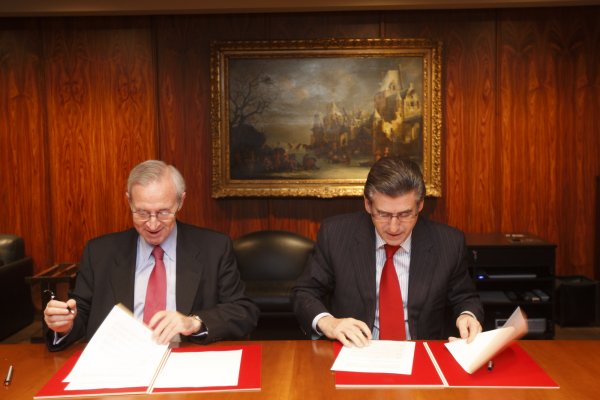Business Culture: The Business Experience
Business Style
In Spain, there are two very distinct business cultures: the older, traditional small and medium-sized enterprises that are family-owned, and run by members of the elite class, and the bigger, international modern enterprises that have embraced modern technological techniques and management styles. However, even with modern globalization, Spain is still an essentially conservative business society that values old customs and traditions. The Spanish prefer to do business with people they know and trust, and consider people more important than institutions. Many Spaniards tend toward independence as individuals, yet are also fiercely loyal in their personal relationships. In fact, if you develop a strong relationship with a Spanish company and then change organizations, they will most likely move their account with you.
Visitors who prefer speed should be aware that patience will be necessary in all dealings with Spanish companies, due to layers of bureaucracy, as well as the fact that most Spaniards resist hurrying. Also, honor and pride are very important to Spaniards, as well as saving face, or building and protecting a respected professional reputation, so honor-preserving protocols will often be adhered to.
While it is less common in Spain today to work in a family-owned business, family is still the top priority for most Spaniards. This attitude extends to the workplace, as most Spaniards will measure you by the quality of your character, rather than your professional experience or past business successes. Personal contacts and relationships are essential to success in Spain, so visitors should make the effort to cultivate and develop relationships with their Spanish counterparts.
Relationship Building
Relationships are one of the most important aspects of Spanish business life. Most Spaniards will want to get to know you and establish chemistry with you before discussing any business matters. Personality may be more important than professionalism, technical ability, or competence. Visitors should be aware of this and plan to spend sufficient time letting their Spanish counterparts get to know them. In fact, the first meeting will often be focused on becoming acquainted with each other, so you may need to answer questions about your family life and background to help your Spanish counterparts feel comfortable with you. Even after the initial meeting, much time will be spent developing a personal relationship. Visitors should expect their Spanish counterparts to join them at any or all of their daily meals.
When dealing with traditional, older Spanish companies, hierarchal ranks will be very important. The organization may be headed by a benign autocrat, and authority figures are respected. For example, people are addressed by their titles, and visitors should use the usted form, rather than the tu form, when speaking in Spanish. Respect this aspect of the Spanish culture to preserve harmony and build trust with your counterparts.
Etiquette
When meeting your Spanish business contacts for the first time, follow their leads. The type of greetings you exchange will depend on the type of company you're working with. For example, older, traditional contacts may use the courtesy titles of Don or Doña. However, these titles are becoming increasingly rare in modern Spain, and they are typically only used at formal occasions. Therefore, some Spaniards may view you as sarcastic if you use these terms in the wrong setting. So, wait to see which titles your Spanish counterpart uses. The most common titles will be the person's honorific title, such as Doctor, Señor, or Señora, along with his or her surname, until he or she invites you to move to a first-name basis. Most Spaniards have two surnames: the first one is paternal and the second one is maternal. Visitors should address their counterparts with the first surname only.
The physical greeting will also vary depending on your relationship and the person. The handshake is the standard greeting in the workplace, as well as the proper farewell gesture. Once your Spanish counterpart gets to know you, he or she may hug you as the standard greeting and departure gesture. Females typically greet their friends with a kiss on both cheeks. If this is appropriate, your Spanish counterpart will initiate it. Also, you should note that you actually won't kiss the cheeks: rather touch cheeks while kissing the air. The right cheek is "kissed" first. Visitors should remember to say goodbye to each person individually upon departure.
Business communications in Spain are formal, and most will be in Spanish. Therefore, if you are not fluent in Spanish, you should hire a local interpreter. Present all written materials in both English and Spanish, as well.
Business cards are generally exchanged during introductions, and visitors' business cards should be printed in Spanish on one side. Present the card with the Spanish side up when exchanging cards. Be sure to include your title on your business cards. Always examine the Spanish contact's card and comment on it before placing it on the table or in a card case. Physical contact in the business place occurs frequently, and people stand much closer together than many visitors may be used to in Spain.
Article written for World Trade Press by Kerrie Main.
Copyright © 1993—2025 World Trade Press. All rights reserved.

 Spain
Spain 



